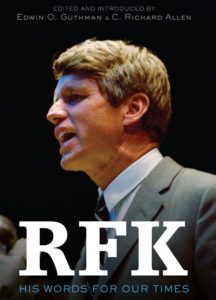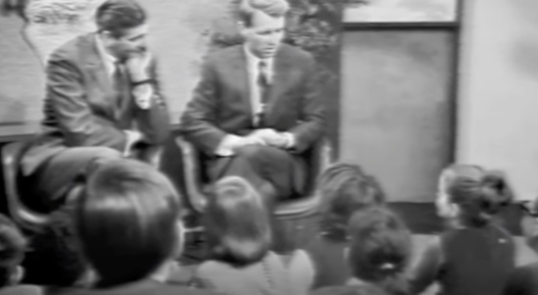
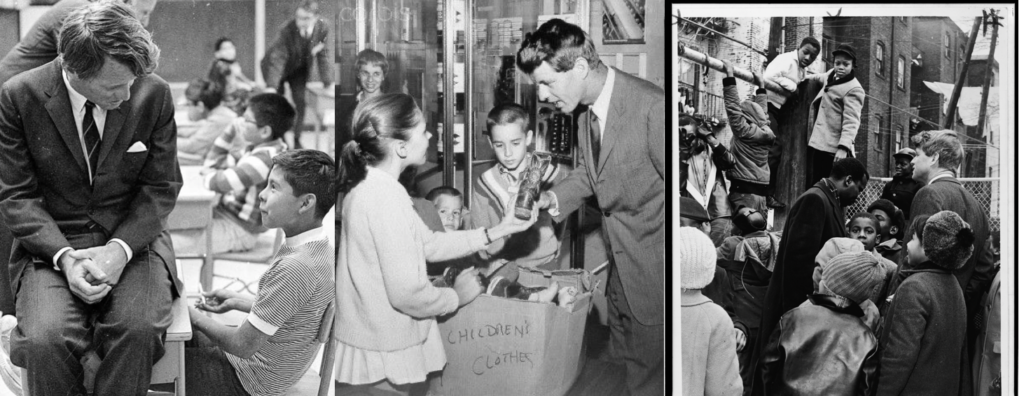
In contrast to WC Fields’ famous quip, I think an adult’s character is fully demonstrated by how he or she treats children and pets. Stories mourning the passing last week of legendary NY television host Sonny Fox, best known for his Wonderama show for elementary school kids in the mid-1960s, brought this home to me again. The clip below reflects very well on Mr. Fox, and is especially revelatory of his guest, Robert Kennedy.

That RFK gravitated to children is not surprising. He was one of nine in his family, and fathered eleven of his own, which most of us believe alone is sufficient to award sainthood to his wife Ethel. Every biographer of Kennedy’s, and most of the journalists who covered him during his fifteen or so years in the public eye, noted that children (even those who did not know him) were drawn to Kennedy, and he to them.RFK sought kids out on foreign trips and domestic stops, sharing in their delight at every form of play, listening intently to their stories, worries and hopes, and often quietly returning their hugs, or holding their hands or stroking their cheeks.
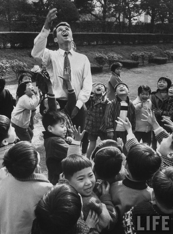
That connection clearly grew stronger and more visceral as Kennedy sought out those in trauma, and suffered more devastating losses of his own. His impatience with adults, particularly those whom he felt misused their power or under-appreciated their bounties, remained close to the surface. But kids, devoid of artifice, saw him as one of their own — willing to play for no reason, or just be still. Most of all, as someone who would treat them as individuals worthy of respect, capable of caring about the most serious of subjects, and deserving real answers.
You’ll see all of that on Wonderama, a show he visited around each holiday season from 1964 through Kennedy’s last Christmas in 1967 (this episode was from the second visit). As Sonny Fox noted years later, “most people talk at kids; some talk to them — [RFK] talked with them and really listened.” And as you watch, remember that this man was widely branded Ruthless Robert, and had relentlessly interrogated Mafia murderers and crooked union bosses across a Senate Committee table. With children, there is instead a pervasive gentleness, and his lifelong shyness.
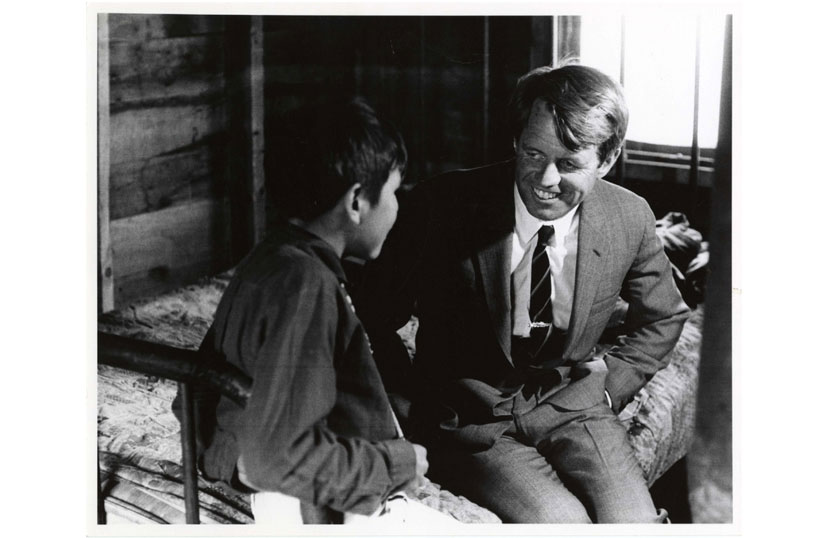
You can’t fake it with kids. They don’t care if you have a lot of money, and at eight or nine years old, they aren’t likely even to know if you are famous. At best, if you are both lucky and immensely deserving, they will see that you are one of them, curious and hopeful, yet aware that the world has its terrors. And that, not bluster and big crowds, survives even a half century and fuzzy black and white footage, to remind us of what makes a real man.
